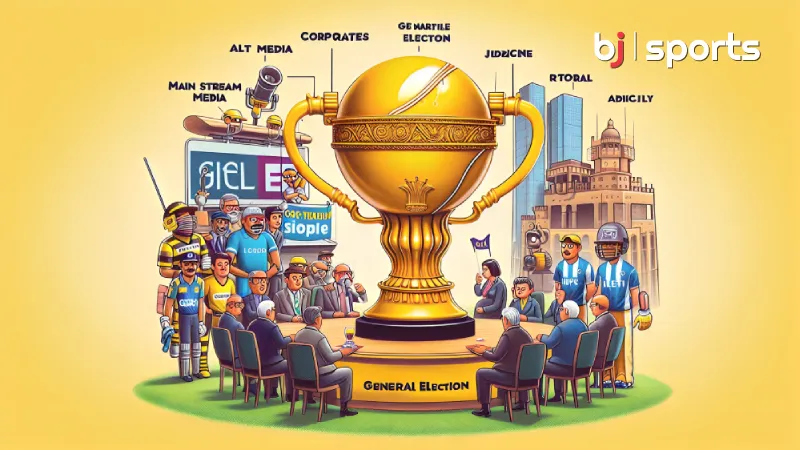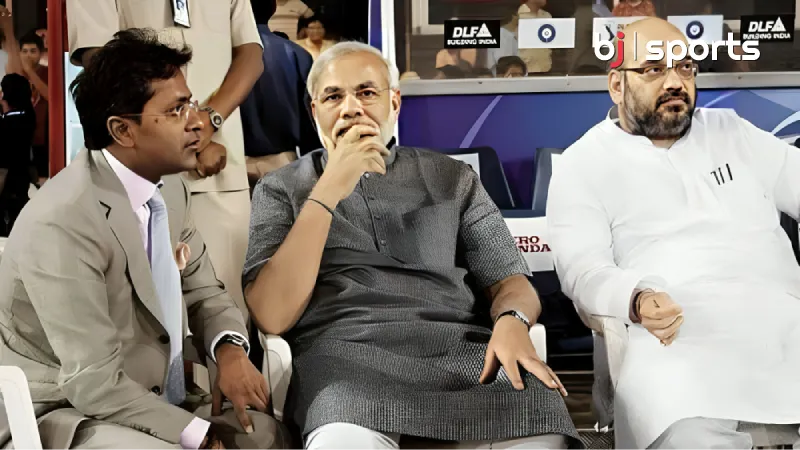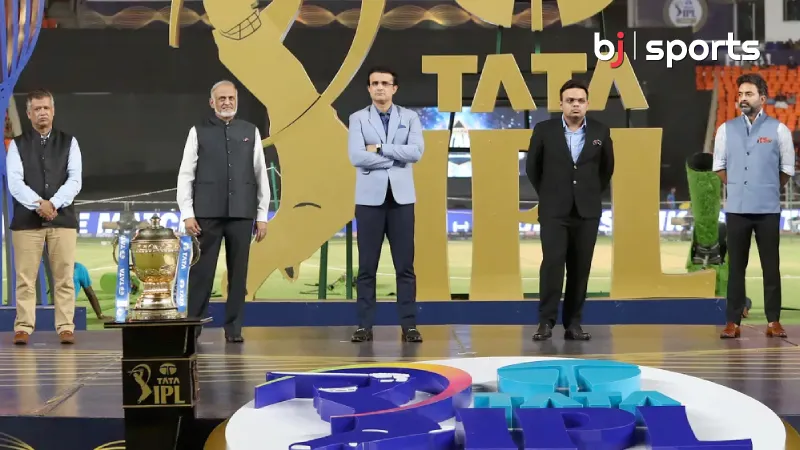
The Indian Premier League (IPL) has become a juggernaut in the world of cricket. Its high-octane action, star-studded line-ups, and glamorous presentation have captivated audiences worldwide. However, beneath the glitz and glamour lies a complex web of political dynamics that influence various aspects of the league. This blog delves into the intricate connections between politics and cricket within the IPL ecosystem.
From Brainchild to Business Empire: The IPL’s Political Genesis
In 2008, the brainchild of then-BCCI vice-president Lalit Modi, the IPL took the cricketing world by storm. The concept of a franchise-based Twenty20 cricket league, modeled after successful sporting leagues like the NBA, was groundbreaking. However, the league’s inception was not without its political maneuvering. Modi, a flamboyant figure with strong political connections, navigated the interests of powerful stakeholders. Cricket boards, franchise owners with political affiliations, and influential figures all played a role in shaping the league’s early years.
Read more:- How Tech is Transforming the Way We Experience the IPL
Money, Power, and Ownership: Decoding the Political Connections

The ownership patterns of IPL franchises reveal a fascinating interplay between business and politics. Several teams are owned by prominent politicians, business tycoons with close political ties, and Bollywood celebrities with political leanings. The influence of these figures extends beyond financial backing. Their connections can impact decision-making within the league, from player acquisitions to team strategies. For instance, some argue that political affiliations might influence franchise owners to favor certain players from their regions or with similar political leanings.
Beyond the Game: Political Considerations in Venue Selection
The selection of venues for IPL matches is not merely a logistical exercise. State governments often play a crucial role, providing infrastructure support and financial incentives to host games. The political considerations behind venue selection are undeniable. States with upcoming elections might aggressively pursue hosting rights, hoping to leverage the IPL’s popularity for political gain. These decisions can have a significant impact on local economies, boosting tourism and infrastructure development in chosen cities.
The High-Stakes Auction: Money Talks, Politics Whispers

The IPL player auctions are a spectacle in themselves. But beyond the bidding frenzy lies a complex financial ecosystem. Corporate sponsors with political affiliations and wealthy individuals with political aspirations can use the auction platform to project themselves or influence player signings. While outright political interference in player selection might be difficult to prove, whispers of potential influence linger. Financial backing from politically connected entities can give certain teams a significant advantage in acquiring top talent.
Media Blitz and Public Perception: The Power of the Narrative
Media rights and broadcast deals are the lifeblood of the IPL. Major media conglomerates, some with political affiliations, vie for broadcast rights. This gives them immense power to shape the public narrative surrounding the league and its stakeholders. Favorable media coverage can significantly influence viewership and public perception of a team or player. Critics argue that certain media outlets might downplay controversies involving politically connected franchises or individuals, creating an uneven playing field.
Governing the Game: Balancing Power, Politics, and Transparency

The Board of Control for Cricket in India (BCCI) is the governing body of the IPL. However, concerns have been raised about the effectiveness of its regulatory framework. The potential for political interference in league operations exists. This can manifest in issues like overlooking governance lapses, shielding politically connected franchises from disciplinary actions, or delaying reforms to appease powerful stakeholders.
Scandals and Fallout: The Dark Side of the Glittering League
Over the years, the IPL has been rocked by controversies, including match-fixing allegations, conflict of interest issues, and disciplinary actions against teams and players. These scandals often have political ramifications. Depending on the individuals involved, the extent of investigation and the severity of punishment can vary. Some critics argue that politicians have wielded their influence to shield their affiliated franchises or individuals from the full brunt of disciplinary actions, tarnishing the league’s credibility.
Conclusion: A League Divided? Balancing Politics and Cricket
The IPL is an undeniable success story, showcasing cricketing excellence and generating massive revenue. However, the intricate interplay between politics and cricket raises concerns about transparency, accountability, and the level playing field. To maintain the integrity and credibility of the IPL, strong governance structures, independent oversight, and a commitment to transparency are crucial. The future of the league rests on its ability to navigate these political complexities and prioritize the spirit of fair competition above all else.
 Big Bash League 2024-25 Season: BBL Winners List Year-Wise Breakdown & Dream11 Prediction Insights
Big Bash League 2024-25 Season: BBL Winners List Year-Wise Breakdown & Dream11 Prediction Insights Top 5 Most Expensive IPL Players of All Time
Top 5 Most Expensive IPL Players of All Time BPL Ticket Price and Online Booking Process in 2025: A Complete Guide
BPL Ticket Price and Online Booking Process in 2025: A Complete Guide Top 5 Best Bowlers of SA20 2023: From Yorkers to Hat-Tricks
Top 5 Best Bowlers of SA20 2023: From Yorkers to Hat-Tricks

